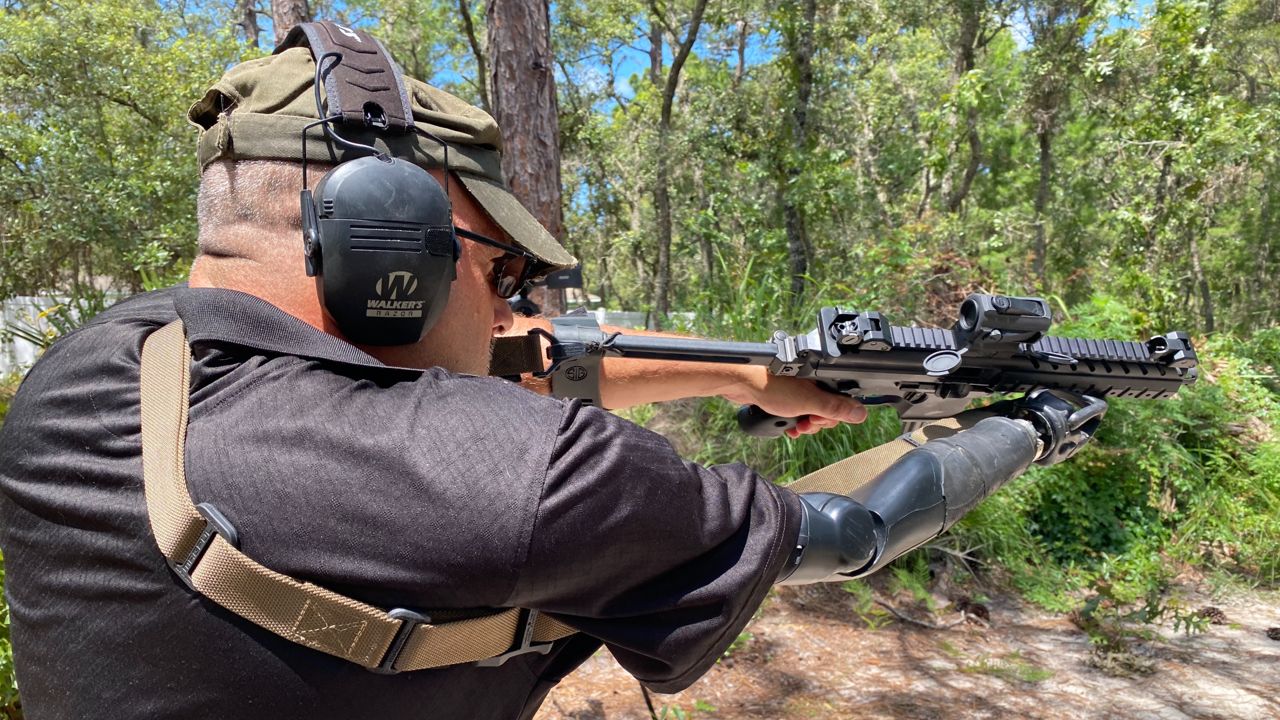FLORIDA — Rick Cicero has spent his entire life out on the gun range.
“I’ve been shooting since I was a boy, my dad is a retired firearms instructor and it’s been part of who I am,” said the retired army master sergeant and firearms instructor.
So when he enrolled in the Army in 1990, he was no stranger to guns.
"As soldiers, in particular, it’s a piece from basic training throughout our entire years, especially in a combat environment. That piece of equipment is right there, that is your lifeline to keep you alive,” said Cicero.
It was true then, but for Cicero, perhaps even truer now.
WATCH THE FULL STORY HERE
Cicero lost his right arm and leg in an explosion when serving in Afghanistan 11 years ago.
“Getting that skill back—it reinvigorates you. And it helps to maintain a bit of confidence that you’re still able to do something,” said Cicero.
He’s still able to shoot today, in large part thanks to the pistol stabilizing brace.
“This platform exists specifically for the purpose of giving someone the ability to slide their forearm through this base right here and safely grip that firearm and control it in a safe manner,” said Cicero.
The pistol stabilizing brace was designed to help people with physical disabilities hold and shoot a gun accurately but has since proven to help teach safety and accuracy to people without them.
Now, the federal government is considering limiting access, or even completely doing away with the brace out of concern it makes a pistol too much like a rifle, and violates the short-barreled gun laws.
But Cicero says passing a law like that would violate the Americans with Disabilities Act.
“If they take this away, they’re violating their own law because this is designed and employed for people like me,” said Cicero.
The brace has helped him find purpose in more ways than one.
He also uses it to teach other injured vets to shoot again.
“The most important thing to me about this brace, this whole aspect, is another avenue of getting injured veterans out of the house,” said Cicero.
So he plans to continue to travel back and forth from Tallahassee to fight the restrictions because he knows what getting back on the range did for him and he knows what it can do for others too.
Members of the public are encouraged to weigh in on the topic by September 5.
You may submit comments, identified by docket number ATF 2021R-08, by any of the following methods—
- Federal eRulemaking Portal: www.regulations.gov. Follow the instructions for submitting comments.
- Mail: Denise Brown, Mail Stop 6N-518, Office of Regulatory Affairs, Enforcement Programs and Services, Bureau of Alcohol, Tobacco, Firearms, and Explosives, 99 New York Ave. NE, Washington, DC 20226; ATTN: ATF 2021R-08.
- Fax: (202) 648-9741.




